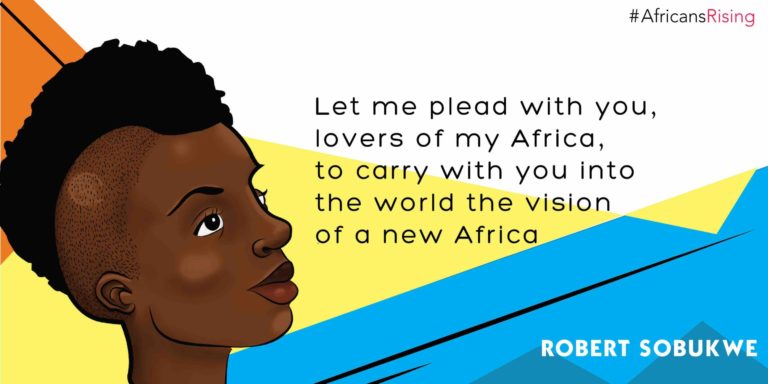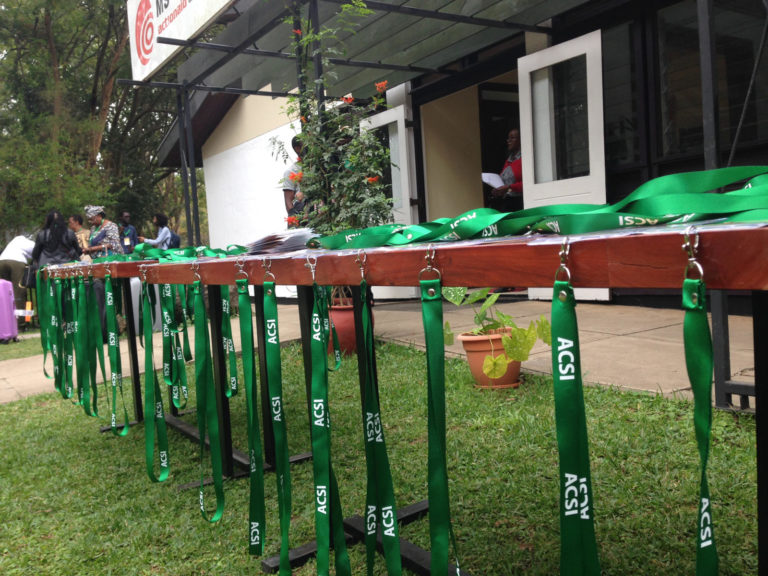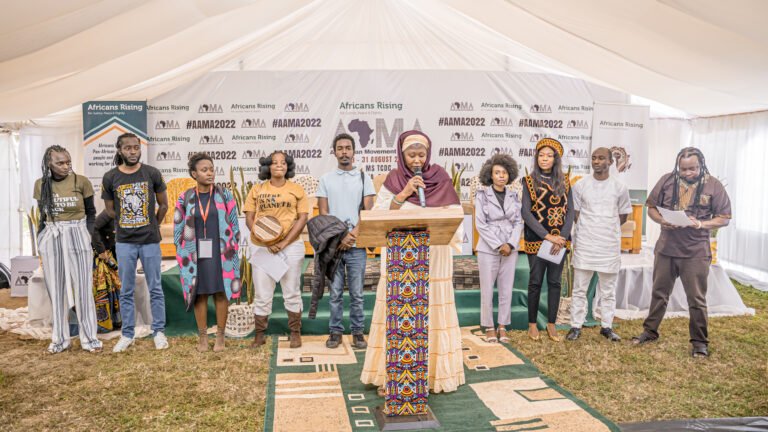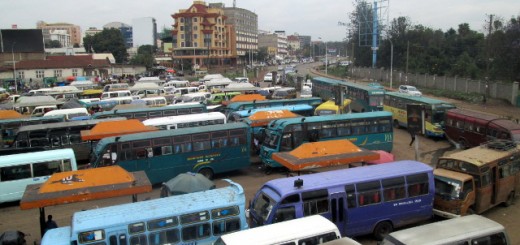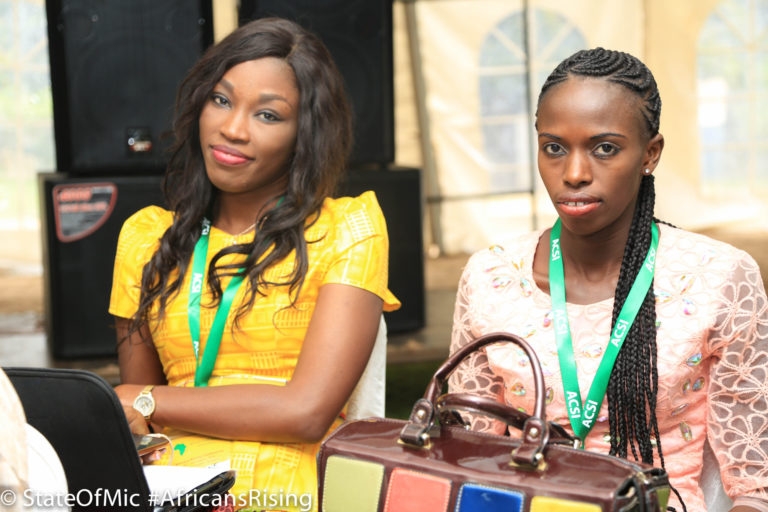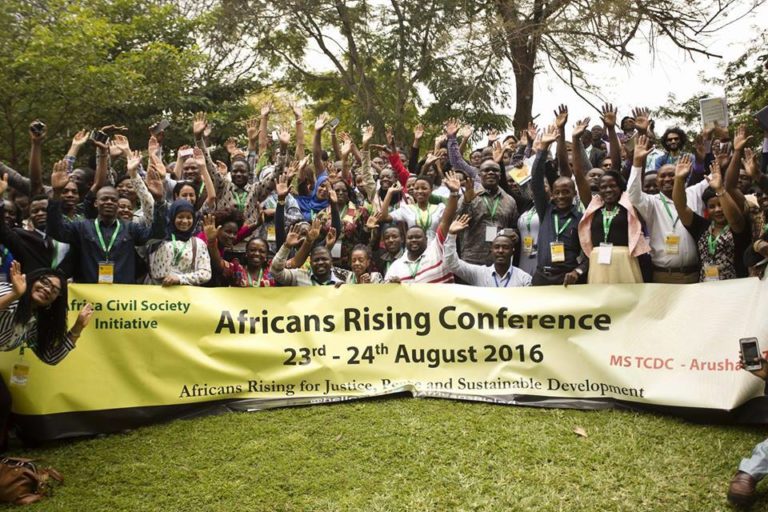Gideon Adeyeni, a Pan-Africanist, an activist and a former Coordinating Collective member of Africans Rising movement rode a bicycle from Lagos, Nigeria through Benin Republic and Togo to Acrra, Ghana from 23rd – 28th December, 2023. He shared his epic ride journey in a webinar discussion convened by Africans Rising.
Hardi Yakubu, Africans Rising Movement Coordinator began the conversation by telling the worrying story of how during a convening of the movement in 2022 in Arusha, Tanzania, a member from Senegal faced enormous challenges obtaining a visa. He pointed out that Gideon could not make it to the convening owing to the ridiculous travel restrictions that Africans face on the continent.
The conversation
Gideon started by expressing his hope and in what he termed as his “little action” on this journey, he was certain it would inspire many more such dramatic and even disruptive actions. Describing his motivation for the trip, he stressed the need for actions to galvanize and mobilize the people in support of the Borderless Africa campaign. The history of the struggle for justice, according to him, shows that it has always involved such actions to eventually bring change.
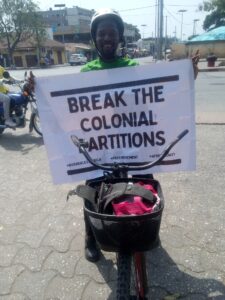 He also expressed the need to have such actions taken where the oppressed take to the streets and not merely in their comfortable offices and meeting halls. “We need actions on the streets where the oppressed are in masses’ ‘, he emphasized. His need to galvanize the people and the hope to inspire many more to such actions, in order to exert pressure on those who occupy the seats in government today, to collapse the arbitrary partitions that the colonists left on the continent was thus the major motivation for him.
He also expressed the need to have such actions taken where the oppressed take to the streets and not merely in their comfortable offices and meeting halls. “We need actions on the streets where the oppressed are in masses’ ‘, he emphasized. His need to galvanize the people and the hope to inspire many more to such actions, in order to exert pressure on those who occupy the seats in government today, to collapse the arbitrary partitions that the colonists left on the continent was thus the major motivation for him.
Gideon mentioned that while it was planned for him to ride for 3 hours a day, he rode for several hours more than the initial plan – riding for about 9 hours per day. This, according to him, was a reminder of the incredible capacity of the human mind and body.
Why African unity?
Responding to the question on why he advocates for African unity, he asserted that
“unity serves the cause of liberation, while division serves the cause of domination; for a people to be dominated, there is the need for their division”.
This, according to him, explains why Africa was partitioned in Berlin in 1884. “If division is necessary for domination, then unity is necessary for liberation” he stated.
African unity, according to him, would mean free movement, solidarity, Africans living anywhere on the continent without being discriminated against; it would further mean that there would be no xenophobic attacks against any African on the African continent and that we have the infrastructure to interact freely on the continent.
When Hardi asked why he thinks the conversation that has been ongoing for years around the need for African unity has not led to the kind of greater unity and prosperity that many seek, Gideon lamented the fact that the crop of the so-called African leaders today are not those who share this Pan-African vision of building solidarity among the peoples of Africa. The fact that we do not have individuals who share this Pan-African vision occupying the seats of government in Africa is making some folks conclude erroneously on the death of Pan Africanism.
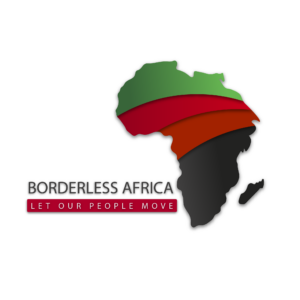
A core part of the struggle to build unity among African people, according to him, is to ensure that those who occupy the seats of government within these colonial partitions are those who particularly share this vision. For this, we have to give attention to redirect political power in the hands of Pan-Africanists. We have to question those who seek elective positions at the country level about their views on free trade and free movement on the African continent. This, he said, would make it less easy for people who do not share this vision to ascend into the seats of government.
Narrating the “tedious albeit fulfilling” nature of his ride, Gideon mentioned that he ensured his clothes were very minimal “garri” and some edibles which included dates were all the food he had with him. His journey started on the 23rd from Lagos, arriving and spending the night in Badagry after many hours of riding. He described how he met a group of four young men at an abandoned filling station on his way and explained his action to them as part of the #BorderlessAfrica campaign. They were extremely excited to support him and took photographs holding his campaign banner, which had the inscription “Break the Colonial Partitions”. The following day, from Badagry, he proceeded to Ouidah, a traditional town in Benin Republic.
Unwarranted immigration payments
He then took a moment to lament how he had to pay certain amounts of money at two immigration posts – the one of the country he was departing from and that of the country he was entering – at each of the three borders he crossed. He noted that he had to pay to enter Nigeria upon his return after the trip, despite him holding a Nigerian passport.
Continuing with his narration, he said that he spent a night at Ouidah, before proceeding to Aneho, which is a town in Togo, and then to Sogotokpe, Tema and later Accra, spending a night in each town. He mentioned how he missed his way between Benin Republic and Togo. He ascribed this to himself being too confident of his knowledge of geography. He thus pointed out the human tendency to grow too confident in their various endeavors and how this could make humans more prone to errors.
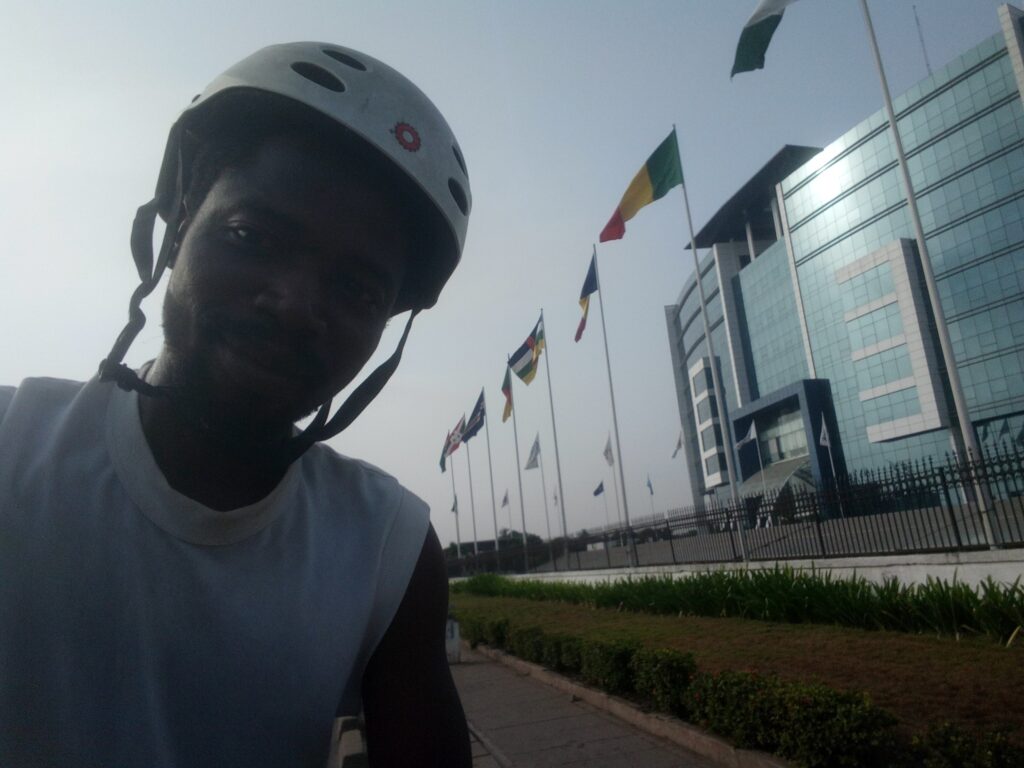
With hand descriptions and the presence of a few English speakers, he was able to communicate and get support even in places where he could not understand the native language. Gideon pointed out that the people were very receptive of the campaign message – for the free movement of Africans on the African continent. This shows that the Africans on the continent instinctively know that the colonial partitions that exist do not serve our liberation; but serve to dominate and divide us.
His peak engagement in Accra was a live interview on the 29th of December on Onua TV, the morning after his arrival. He also visited the Kwame Nkrumah Circle, where he sat at the feet of the statue of Nkrumah and took some photographs. “I remembered those words of Nkrumah when he said, we are at a point where we must unite or perish,” he said.
Young people and their role in struggle for Africa liberation
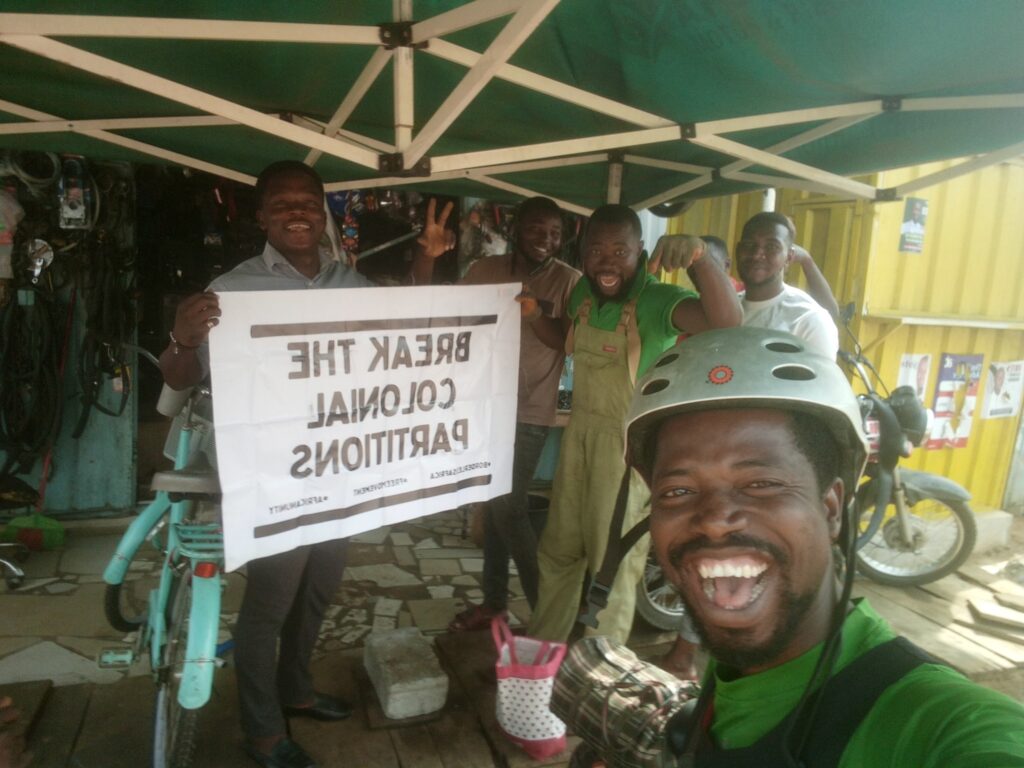 On the role of young people in the struggle for African liberation, Gideon stated emphatically that young people must take a central role in the struggle to advance African liberation and generally in the struggle for justice. He based his assertion on the argument that young people have played a central role in the struggle historically, even as much as the movement may be intergenerational. He identified three attributes that thrust a central role in the struggle of young people: their unmatched level of passion and energy, an unmatched level of optimism, and their unmatched level of creativity. He added that young people are quickly updating Gene Sharp’s 198 methods of nonviolent actions today.
On the role of young people in the struggle for African liberation, Gideon stated emphatically that young people must take a central role in the struggle to advance African liberation and generally in the struggle for justice. He based his assertion on the argument that young people have played a central role in the struggle historically, even as much as the movement may be intergenerational. He identified three attributes that thrust a central role in the struggle of young people: their unmatched level of passion and energy, an unmatched level of optimism, and their unmatched level of creativity. He added that young people are quickly updating Gene Sharp’s 198 methods of nonviolent actions today.
On where he finds the hope to keep forging ahead, Gideon asserted that when people struggle consistently for progress, they always win it. “While it may take time, committed, passionate people with the right amount of understanding, the willingness to sacrifice and with the embodiment of the ethical values of compassion, empathy and so on, definitely can win progress” he posited.
He also added that this struggle to build unity and solidarity among African people does not in any way conflict with all other struggles for social and environmental justice. In fact, according to him, this struggle is part of the bigger struggle for the liberation of all of humanity. In conclusion, “the unity of Africa is the bulwark of world peace”, Hardi added.

